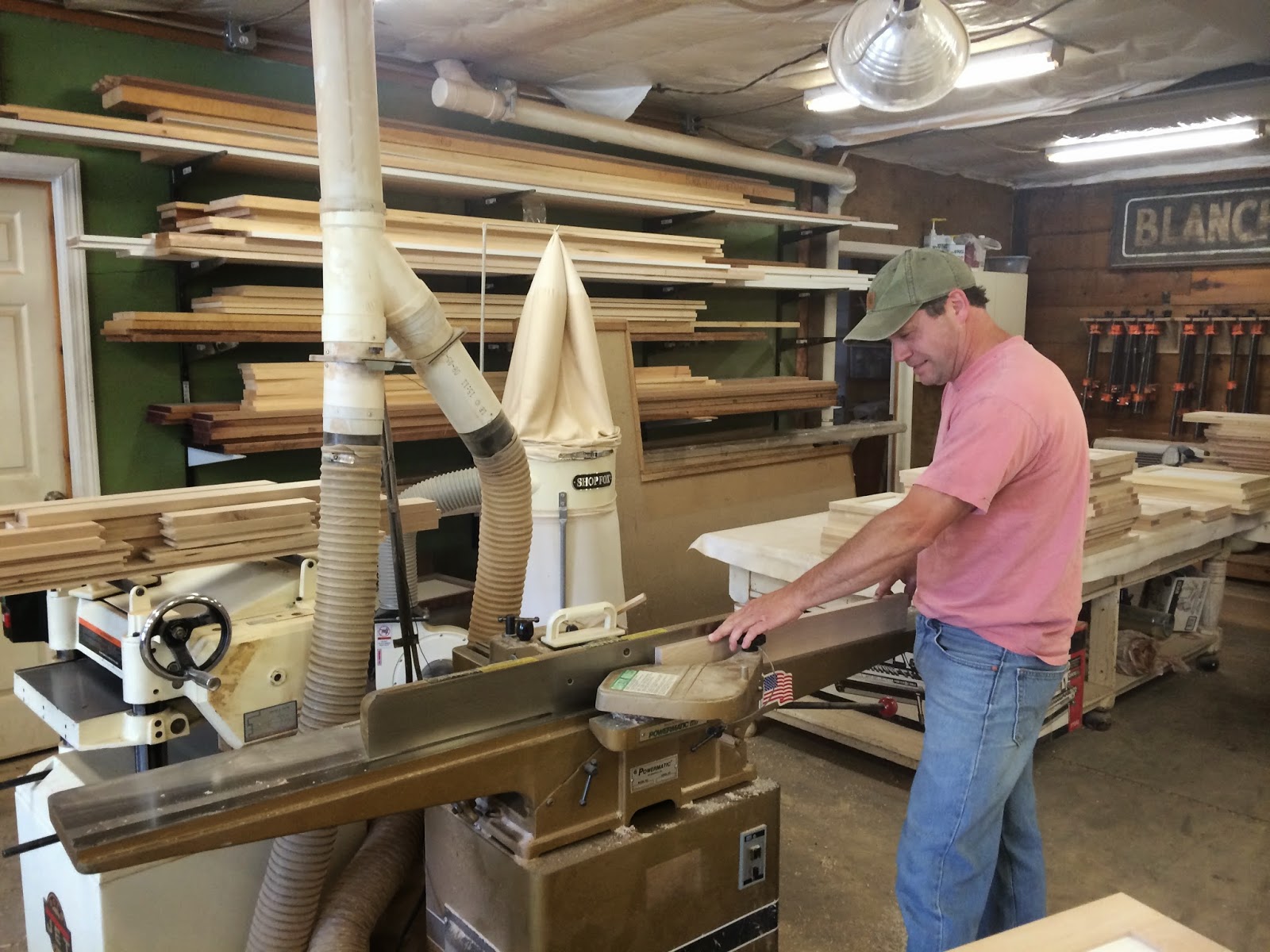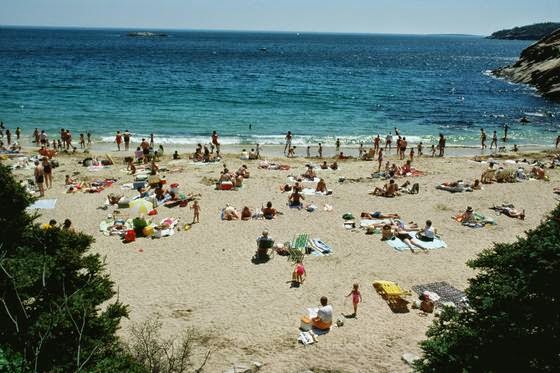Oh what does one bring to China for one month? Lucky for us, we have had a tremendous amount of information sent to us from the National Committee on US-China Relations to help us prepare for the trip. The National Committee has administered the Fulbright-Hays program on behalf of the US Department of Education for more than 30 years.
The National Committee on US-China Relations was founded in 1966 by a coalition of academic, civic, religious and business leaders with the aim of building a network of accomplished, credible individuals from a broad political spectrum committed to open discussion and debate and to improving US policy toward China. The committee's mission was to explicitly educate the US public, but it had the opportunity to offer information and advice to President Lyndon B. Johnson and other political leaders and in 1972 was in a position to co-host (along with the US Table Tennis Association) the Chinese Ping Pong team's famous tour of the United States, an event that captured world attention. The National Committee is a network of Americans from all parts of the country as well as corporations and professional firms. Members of the Committee and its board of directors include many distinguished citizens: former secretaries of state Madeleine Albright, Henry Kissinger, and Condoleezza Rice and other former Cabinet secretaries; all former ambassadors to China; Richard Holbrooke, former chair of the Asia Society and Special Envoy to Afghanistan; leading scholars such as Jerome Cohen, Harry Harding, David Lampton, Susan Shirk, Ezra Vogel, and many corporate executives interested in China.
There were three briefing books sent to us that cover everything about history, current events and travel in China. Below is the section that most pertains to my plan of the day.
All professional programs I have traveled with in the past leave little question as to what to expect or what you will need. The information is straightforward.
Here are examples of travel advice out of the book:
The National Committee on US-China Relations was founded in 1966 by a coalition of academic, civic, religious and business leaders with the aim of building a network of accomplished, credible individuals from a broad political spectrum committed to open discussion and debate and to improving US policy toward China. The committee's mission was to explicitly educate the US public, but it had the opportunity to offer information and advice to President Lyndon B. Johnson and other political leaders and in 1972 was in a position to co-host (along with the US Table Tennis Association) the Chinese Ping Pong team's famous tour of the United States, an event that captured world attention. The National Committee is a network of Americans from all parts of the country as well as corporations and professional firms. Members of the Committee and its board of directors include many distinguished citizens: former secretaries of state Madeleine Albright, Henry Kissinger, and Condoleezza Rice and other former Cabinet secretaries; all former ambassadors to China; Richard Holbrooke, former chair of the Asia Society and Special Envoy to Afghanistan; leading scholars such as Jerome Cohen, Harry Harding, David Lampton, Susan Shirk, Ezra Vogel, and many corporate executives interested in China.
There were three briefing books sent to us that cover everything about history, current events and travel in China. Below is the section that most pertains to my plan of the day.
All professional programs I have traveled with in the past leave little question as to what to expect or what you will need. The information is straightforward.
Here are examples of travel advice out of the book:
"Please note that all airline weight restrictions will be strictly enforced.
On international flights, you are entitled to one checked bag that weighs up to 50 pounds/23kg each and up to 62.0 linear inches (157cm) L + W + H. The charge for the second bag is $100. Within China, passengers are only allowed one checked bag with a maximum weight of 44 pounds/20 kilograms. You will be responsible for any overweight charges, and these can become expensive."
44 pounds. 1 month worth of stuff. Alrighty then.
On international flights, you are entitled to one checked bag that weighs up to 50 pounds/23kg each and up to 62.0 linear inches (157cm) L + W + H. The charge for the second bag is $100. Within China, passengers are only allowed one checked bag with a maximum weight of 44 pounds/20 kilograms. You will be responsible for any overweight charges, and these can become expensive."
44 pounds. 1 month worth of stuff. Alrighty then.
"You are traveling to China as a professional and as a representative of the United States. Please dress
accordingly. Shorts and T-shirts should be reserved for sightseeing. Cut-off and distressed shorts are not
appropriate for any portion of the trip and running shorts are suitable only for running. Long pants (for
men) or trousers, skirts, or dresses (for women) should be worn to all briefings. Tight, short, and sheer
fabrics should be avoided. Women should also stay away from plunging necklines, low backs, revealing
tank tops, bare stomachs, and anything too flamboyant."
"It is customary to take small gifts to present to hosts, guides, and interpreters, as well as others who are helpful
during the trip. It is not a good idea to give clocks as gifts, because the Chinese pronunciation for the word clock has the same
pronunciation as words associated with death. In addition, green colored hats are not good gift ideas because
they can be viewed as a sign of cuckoldry in traditional Chinese culture."
These are two talented woodworking artists from Winthrop Maine. Mike Blanchard and Todd Park, owner of A Moment In Time Art Gallery and Workshop. They collaborated on creations for me to take to China to give as gifts. I wanted something that would reflect our state, and something that was locally made.
These are two talented woodworking artists from Winthrop Maine. Mike Blanchard and Todd Park, owner of A Moment In Time Art Gallery and Workshop. They collaborated on creations for me to take to China to give as gifts. I wanted something that would reflect our state, and something that was locally made.
"The Chinese have known for centuries how to create edible delicacies with anything at hand. As a result,
practically everything that grows is eaten. Some of the more exotic items are tiger lily buds, lotus roots,
birds’ nests, tree mushrooms (“wood ears”), chrysanthemum petals, sea anemones, elephant trunks, and
shark fins."
"A Chinese banquet, which sometimes consists of as many as twelve or more courses, is a challenge for any gastronome. Traditionally each course is served on a large platter placed on a lazy susan in the center of the table. Chinese hosts will usually serve their guests – at least on the initial go around of each course. Expect more food than anyone could possibly finish; to show hospitality Chinese order more rather than less. Since politeness requires that a guest sample every dish, it is wise to take only a small portion of food at each course and to develop the fine art of “pacing” oneself. Dishes will periodically be removed and replaced with clean ones, so you don’t have to worry about uneaten food piling up on your plate."
"Be aware that playing with one’s chopsticks is unacceptable."
"A Chinese banquet, which sometimes consists of as many as twelve or more courses, is a challenge for any gastronome. Traditionally each course is served on a large platter placed on a lazy susan in the center of the table. Chinese hosts will usually serve their guests – at least on the initial go around of each course. Expect more food than anyone could possibly finish; to show hospitality Chinese order more rather than less. Since politeness requires that a guest sample every dish, it is wise to take only a small portion of food at each course and to develop the fine art of “pacing” oneself. Dishes will periodically be removed and replaced with clean ones, so you don’t have to worry about uneaten food piling up on your plate."
"Be aware that playing with one’s chopsticks is unacceptable."
"Travelers may be exposed to dirt, roaches, smells, public spitting, and nose blowing, which can be
distracting and even disturbing at times. Some people are more comfortable traveling with instant hand
sanitizer for those times when a sink is not readily available. Public toilet facilities outside your hotels
rarely, if ever, have toilet paper or paper towels – some of them will be Asian style with a squat toilet
rather than a western toilet. Visitors should carry an ample supply of tissues and moist towelettes with
them at all times." I will admit I did whimper when I read this. And cried a little on the inside. My friend Jenny on the other hand, would actually scream.
"The Chinese do not mind being asked personal questions about their family or work. As in the West, they
expect to shake hands upon introduction. Other forms of touching, such as hand-holding or a slap on the
back, are common between members of the same sex, but generally avoided between men and women."
"Strict punctuality is observed for social occasions and appointments; it is even proper to arrive a few
minutes before the specified time."
"Visitors are usually free to photograph
almost anywhere, with the exception of airports, airplanes, and other sites where signs are clearly posted.
Pictures of the military are also not permitted."
"Foreigners are often surprised by the chaotic driving in China;
in general, drivers do not strictly abide by traffic rules. It is important, then, to be very careful when
crossing the street as a pedestrian; take your cues from the Chinese around you." Can't wait to see this. The pic above was taken in Shanghai.
From the time I started writing this post this morning, til now I have packed some things. The rule of thumb is light. China during the summer is wicked hot and muggy. One of my friends told me that if I am lucky, the smog might block out the sun. Hmmm. Glad I do not have the asthma. I have only a few more things to add tomorrow and it appears I will have extra room to bring back souvenirs.
From the time I started writing this post this morning, til now I have packed some things. The rule of thumb is light. China during the summer is wicked hot and muggy. One of my friends told me that if I am lucky, the smog might block out the sun. Hmmm. Glad I do not have the asthma. I have only a few more things to add tomorrow and it appears I will have extra room to bring back souvenirs.
Oh,and a big surprise:
We were sent an email the other day informing us that our group has been invited by the Chinese Ministry of Education to attend the closing plenary of the 5th US-China Consultation on People-to-People Exchange at the Great Hall of the People on July 10. The US will be represented by Secretary of State John Kerry and China by Vice Premier Liu Yandong (the highest level female official in China), both of whom are scheduled to make remarks. #awesome
I wonder if I will actually sleep tonight.
We were sent an email the other day informing us that our group has been invited by the Chinese Ministry of Education to attend the closing plenary of the 5th US-China Consultation on People-to-People Exchange at the Great Hall of the People on July 10. The US will be represented by Secretary of State John Kerry and China by Vice Premier Liu Yandong (the highest level female official in China), both of whom are scheduled to make remarks. #awesome
I wonder if I will actually sleep tonight.


















































